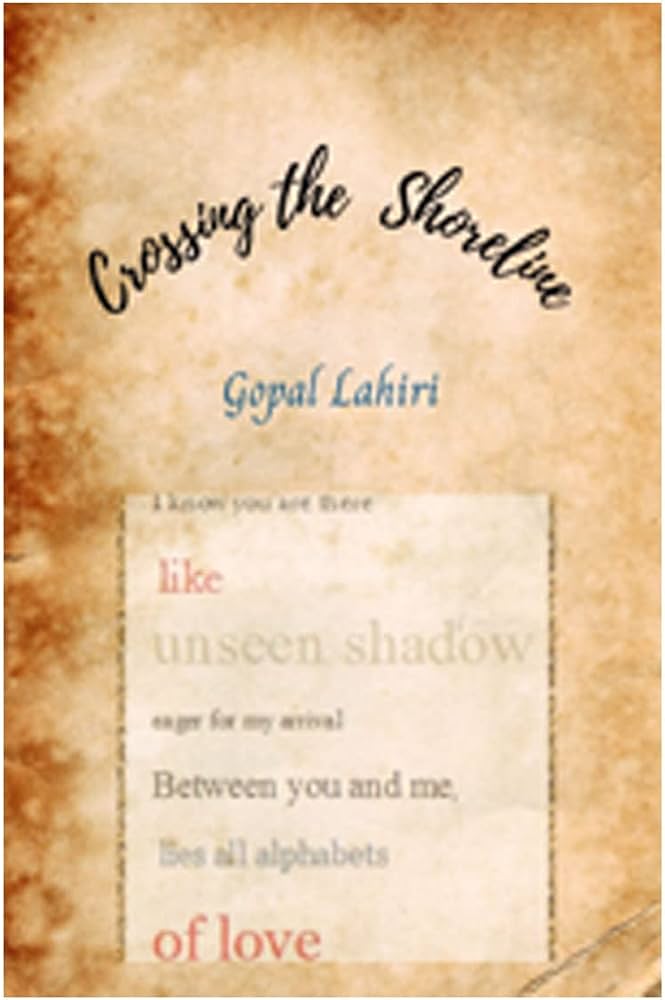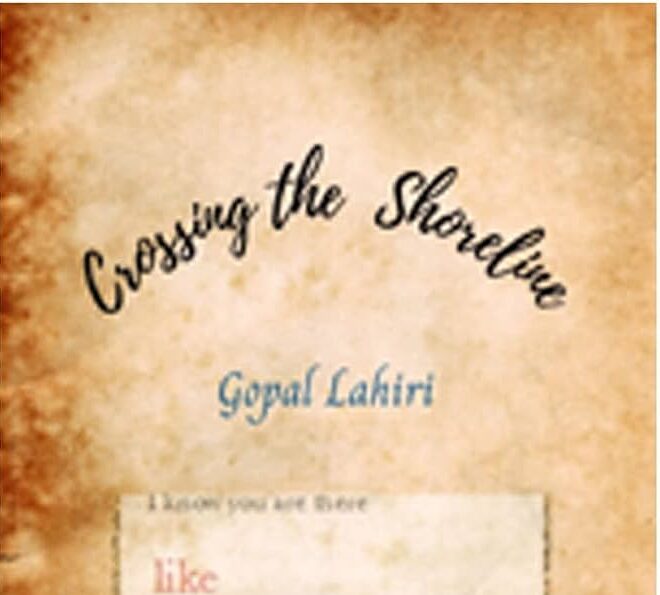Gopal Lahiri’s ‘Crossing the Shoreline’ is a captivating collection of evocative poetry that encourages self-discovery through eloquent verses and poetic innovation, opines Chaitali in her review, exclusively for Different Truths.
Poetry has always been a medium through which artists express their emotions, thoughts, and experiences. In the realm of crossing boundaries and exploring abstract ideas, poems have the power to transport readers to the shoreline of imagination.
Gopal Lahiri’s ‘Crossing the Shoreline’ is both an accomplished and compelling collection of contemporary poems. His words are expressed in this fresh collection as magic, as music, and as affliction. The ‘words shuffle their feet, they waltz’ (My poem) in poem after poem, as the poet delves into the defining and intricate experiences of life. The ‘shoreline’ becomes a metaphorical space where boundaries fade away as waves of words crash against the shores of our minds.
This book contains ninety poems, and the poet has composed the collection with four segments…
This book contains ninety poems, and the poet has composed the collection with four segments that uphold his unique perspective. In these four segments, Lahiri takes the readers on an introspective voyage beyond traditional limitations.
‘...the last light in the sky stands still
Where questions of faith are answered
The first rain, the first sin.
My conversation starts now.” (Conversation)The lines are rich as they are layered with profound insights, and it becomes our privilege to unravel them. The poetic odyssey continues as we dive into the depths of these boundary-crossing verses, allowing ourselves to be swept away by their evocative language.
‘I am not a laughter, nor a deep kohl.
as if I am made of firewood,
revealing the eternal
Red and yellow,
a flame unknown elsewhere
all in the past.’ (Firewood)These lines, and many lines in this collection, invite us to explore unchartered territories within ourselves, inviting us on a journey of self-discovery.
Lahiri’s poems are known for their eloquent and poignant verses, drawing upon personal experiences. Each poem is a window into the poet’s innermost thoughts and feelings, allowing the readers to connect on a deeper level. The language in the poems in ‘Crossing the Shoreline’ also has the known lushness of Gopal Lahiri’s style.
‘Between these pages I weave a magical trapdoor
you come and go, leaving unknown palmprints
somewhere underneath the red pillows.’ (Long Read)Lines like these are evocative descriptions that leave a lasting impact.
‘This winter is like a weathered canvas
Lies at the edge of utterances,
It holds promise
Of which only it knows
The good, bad or ugly.’ (Canvas)The poet demonstrates a mastery of language, using vivid imagery and powerful metaphors…
The poet demonstrates a mastery of language, using vivid imagery and powerful metaphors with careful attention to rhythm and word choice. Resolution, anger, and fear are evoked well, and so are confusion and stoicism. The patterns repeat, but instead of bringing monotony, those somehow end up creating a pattern of comfort for the readers.
This collection is also special for the sections on 14-liners, Haiku, Senryu, and Haibun. The sonnet has a fixed poetic form, consisting of 14 lines, usually an iambic pentameter. Lahiri’s sonnets are consciously chosen experiments in free verse and although these two are on the opposite end of the poetic spectrum, his non-rhyming free verses of 14 lines continue to resonate with us long after we finish reading them. Therein lies his success!
‘I have folded the evening breeze
like pillow covers,
holding the conversation in mute mode...’ (Folded times)
Such words tumble out ceaselessly from the pages and you feel each of them is speaking to you. In this sense, the very aesthetic yet minimalistic usage of words works as a magnificent storytelling tool. Poets continually innovate and poetry in our modern times demands reassessment. The dramatic swerves taken by Lahiri in both form and manner indeed have given unique freedom to his poems. Each of the haikus enables us to appreciate the deeper level of his observations and thoughts and we marvel at the sheer variety of subject matter.
He continues with his experiments in the section called Haiku and Senryu.
He continues with his experiments in the section called Haiku and Senryu. Both Senryu and haiku are forms of Japanese poetry. In both, we look for concise verse forms. Lahiri is a brilliantly gifted writer of Haikus and I’ve had the pleasure of reading them before. The haikus in this collection are like short vignettes trying to capture moments of illumination of one or the other kind. Simple but majestic, these haikus leave a lasting effect on our minds. These delectable poems are an invitation to partake in the epiphanies in our everyday life. In this section rail tracks, mango buds, morning raga, old factories, mom’s kitchen birds taking flights and brussels sprouts – all clamour for equal attention and grow on you, once you pay attention!
‘beneath/the retreating stars/blooming chrysanthemum’ Haiku #2
‘your silent look/a muted swirl/of pasted pink’ Haiku #19The last segment in this book is titled Haibun – a Japanese literary form, combining prose and haiku. Again, this is another exploration of the form on the poet’s part. The duality that exists in this form requires both maximalist and minimalist aesthetic understanding. Without a doubt, he does full justice to this genre and is successful in creating a balance that is much needed in Haibun. It is clear from this short excerpt here below. He is quite masterful with sound, rhythm, and cadence, using a bit longer sentences in the beginning and then narrowing it down with beautiful imagery, and finally, the elegant haiku to embrace the imagery.
‘We turn back to see you, walking behind us. Deafening noise in the road and every brick of the tall buildings turn around the afternoon. A view from the cantilever bridge fades in the smoke screen.
carefree summer/ go-as-you-like clouds/ drop text messages’ (Sight and Sound)
What stands out for me in this beautiful collection, is the fluidity of Lahiri’s words…
Published by Haoajan Publishers, the cover is soothing and eye-catching and so are the illustrations splashed throughout the book, done aesthetically by the artist Sarbajit Sarkar. As a keen follower of Lahiri’s works, I finished reading this collection taking some time. What stands out for me in this beautiful collection is the fluidity of Lahiri’s words, which gains power in his use of a variety of poetic forms and devices. Extremely well-written and eloquently captured, this book is a treasure from beginning to end!
Cover photo sourced by the reviewer.





 By
By

 By
By
 By
By